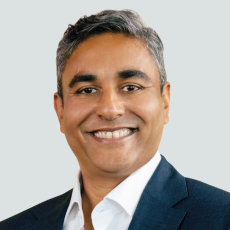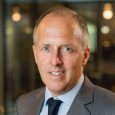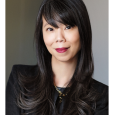What is the main vision that TÜV SÜD has been pursuing since its inception as a company that has been around since the 19th century?
TÜV SÜD has indeed been around for nearly 160 years, and, from the very beginning, our purpose has been to keep people, the environment and assets safe from the adverse effects of progress and technology. Safety concerns were our primary focus until the mid ‘80s in relation to both processes and products. In the ‘90s there was a movement towards quality as people became aware that their everyday products had to meet higher standards. With the advent of the internet and the Internet of Things, new security concerns entered the scene. Finally, as society became increasingly conscious of how our consumption impacts the planet, sustainability became another essential parameter in our business activities.
What are TÜV SÜD’s principle responsibilities when it comes to verifying sustainability standards today?
Primarily, we are expected to provide the verification that the measures taken by organizations have their intended impacts and deliver the outcomes claimed. Our fundamental role is to offer an independent assessment and measure outcomes from a neutral perspective. Sustainability must be defined by the very concrete steps that an organization needs to follow to fulfill their commitments to their stakeholders.
To ensure that we have meaningful actions, we need international standards and regulations. Measurable and quantifiable targets allow organisations to continually gauge whether or not their actions are delivering the results that they desire – we see this increasingly in the measurement of carbon impact. Verification and validation according to specific rules and regulations is essential to demonstrate compliance and to meet the growing demand for transparency and comparability of sustainability performance.
What are the TÜV SÜD’s own internal sustainability commitments?
As a service company, we have a smaller carbon footprint than manufacturing companies. We are confident that we can achieve carbon neutrality by 2025, also with the help of certified compensation measures. Our largest contributors to carbon emissions are energy consumption in our buildings and the mobility of our employees.
We are one of the few TIC companies committed to SBTi NetZero. This means that we will reduce our emissions by 90% by 2050.
This goal requires us to upgrade our entire building stock over the next ten years and to replace all conventional energy with renewable sources. We already use solar and renewable energy in nearly all of our labs, and our new building in Singapore uses 50% less energy than our previous facility. We will add 4,300 MWh of PV capacity globally – every year. In transportation, we are electrifying our fleet and using public transport as much as possible. However, until the aviation industry switches to environmentally friendly fuels, we cannot be 100% green.
What are the main challenges that you need to overcome in order to achieve these goals?
The biggest challenge is the fact that we do not have direct control over many of the issues that affect our carbon footprint or other ESG criteria. We cannot apply the same measures in all the countries where we operate e.g. we cannot buy Green Energy from a grid that does not offer this option. All of these sustainability goals like the SDGs, can only be reached with the help of an educated society and creating knowledge forth is the raison d’être of our company. Once we achieve the awareness that the transition ahead will significantly improve the lives of many people, all our efforts are going to become much more streamlined and will gain significant momentum.
What keeps you up at night and, on the flip side, what gives you confidence about the future in your leadership role at TÜV SÜD?
The condition of the global healthcare infrastructure is definitely one thing that is of concern, especially considering how strained this sector has become as a result of the pandemic. We are very active in the certification of medical devices, and we have seen how the industry has evolved substantially in order to become more affordable and deployable worldwide. However, the ability for all countries to have equal access to it continues to be challenging.
Climate change equally keeps me up at night, but I am optimistic, even confident that we as a society will prevail. We use a carrot and stick approach to encourage everybody to contribute. Similarly to how we managed to adopt safety standards in response to societal needs in the past, I believe that we will be successful in the end. Today society is increasingly demanding a future worth living in. And at TÜV SÜD, we take seriously our role in holding companies accountable and pushing them to become an active factor in the green transition.





